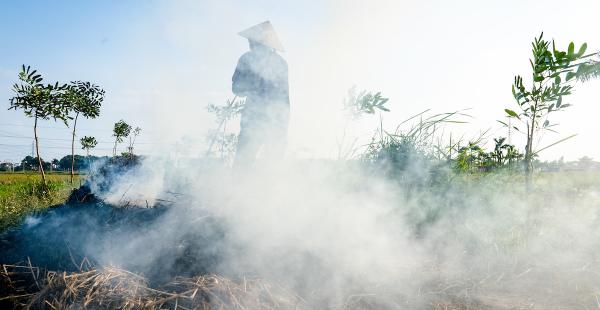
Viet Nam´s Law on Environmental Protection under revision
Based on a decision of Viet Nam´s National Assembly, the Ministry for the Environment (MONRE) is currently revising the Law on Environmental Protection (LEP). An important part of this process is updating the chapter on climate change to legalise the requirements resulting from the international climate change framework.
In 2005, Viet Nam released its Law on Environmental Protection (LEP), which was amended in 2014. Since then, awareness for sustainable development and readiness for environmentally friendly action has grown among political decision makers, triggered through Viet Nam´s ratification of international framework agendas such as the Paris Climate Agreement, the 2030 Agenda on Sustainable Development, or the Nagoya Protocol.
Recognizing that the LEP 2014 has proven too weak to effectively tackle environmental pollution, Viet Nam´s National Assembly passed a decision on the revision of the Law in June 2019. The pursuit is to reinforce its impact and to strengthen compliance with the Law. Besides improved regulations and permits, better economic instruments, enhanced environmental impact assessments and improved institutional governance, one focus is on updating the chapter on climate change (Chapter 4).
MONRE has been assigned to be the leading agency for the revision, with its subordinated Vietnam Environment Administration (VEA) coordinating the process among all relevant departments and stakeholders.
So far, VEA and MONRE have conducted several workshops and consultations on the alignment between climate change and environmental protection, with the purpose to harmonize the Law´s contents regarding requirements linked to Viet Nam´s Nationally Determined Contribution (NDC) and other climate mitigation policies. The GIZ project “Support to Viet Nam for the Implementation of the Paris Agreement (SIPA)” and UNDP provide technical support to the in-depth revision process of the NDC.
As one major achievement, response to climate change is anchored to be one of the long-term goals in planning and strategies, while considering climate change impacts in socio-economic indicators. Additionally, the “fulfilment” of Viet Nam´s commitments on climate change and ozone layer protection has become a paragraph of its own in the Law (according to the draft version of October 2019), explicitly referring to the NDC and Biennial Transparency Reports.
Further, MONRE´s mandate as coordinating agency in Viet Nam´s transitions towards low-carbon development has been enhanced. Hence, MONRE is the agency responsible for state management of greenhouse gas (GHG) emission reduction and shall issue a guidance on the incorporation of climate change contents in strategies and planning, among others. MONRE shall also develop regulations on how to participate in activities to reduce global GHG emissions in accordance with international treaties to which Vietnam is a signatory. Financial mechanisms and modes of cooperation are mentioned explicitly. Climate adaptation is also incorporated as a field of action within the Law.
In the next weeks, various consultations will be held with different stakeholders, which will result in a draft bill by the end of the year. The revised LEP shall be submitted to the National Assembly for adoption by end of 2020.

